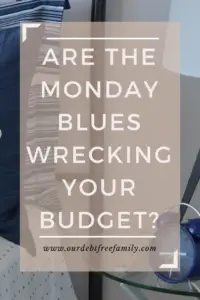There is no avoiding expenses when you own a vehicle. Not only do you need to purchase it to begin with, but you also need to keep it in good shape. You need to pay for maintenance, fuel, and other things. But there are ways to reduce these costs and make them more manageable. Here are some of the easiest ways your family can save on vehicle expenses.
Find a Trusted Mechanic
When it comes time to get repairs done on your car, you’ll need to hire a mechanic to do them for you. Unfortunately, some mechanics can overcharge you. If you want to save money on your repairs, you’ll need to find a reliable mechanic and stick with them. There are over 180,251 mechanics in the United States, so there are many to choose from. Take your time finding one. Look at reviews online or in-person from previous clients as well as their pricing. If you hire them and don’t like the experience, try someone else. If you can eventually find a good mechanic, sticking with them can help you save money in the future.
Get Good Insurance
Car insurance can mean the difference between paying huge amounts of money and paying nothing after an accident. It can cost you between $200 and $300 to replace your windshield without insurance, so make sure you get the best possible insurance for your family. Review it regularly and make sure that you let your company know about any changes to your situation that might improve your rates. Finally, don’t feel bad about shopping around for other policies. Sometimes you can get the same coverage for less money somewhere else.
Keep Track of Gas Prices
Gas prices can vary between different stations. If you keep track of what the prices look like in your community, you can save money by going to cheaper gas stations. Use apps that keep track of gas prices or write them down as you’re out in the community. Then you can keep an eye on different patterns and know what your best options will be when it’s time to buy gas.
As long as the distance that you travel doesn’t cancel out the savings, your family can spend less money on gas this way. However, don’t go overboard. If it will cost you too much gas to drive to a cheaper station out of your way, then it is not worth trying to save money that way.
Know When to Let Go
Eventually, you’ll need to say goodbye to the family car. When you reach a point where it is more expensive to repair it than it is to buy a new car, it will save you money to buy the new car. Be careful with your shopping and make sure that you’re buying something your family can afford.
You should look out for lemons. An estimated 150,000 cars made each year have repeated, unfixable problems and are called lemons. If you find yourself making the same repairs over and over, you should consider buying a new car. Even if it’s new and you want to try to keep your investment, a lemon will cost you a lot of money over the years.
Your family car will always cost you some money, but there are ways to make it less expensive. With a few easy plans and some careful research, you can save money on all different aspects of car purchasing and maintenance. Look to these tips to get you started. By making some easy changes, you can save a lot of money and make owning a car a more affordable investment for your family.





 Ahh Mondays, the most disliked day of the week. After two much needed days off Americans dread getting the week started. But are the Monday blues wrecking your life, especially your budget? “The ‘Monday Blues’ describe a set of
Ahh Mondays, the most disliked day of the week. After two much needed days off Americans dread getting the week started. But are the Monday blues wrecking your life, especially your budget? “The ‘Monday Blues’ describe a set of 

